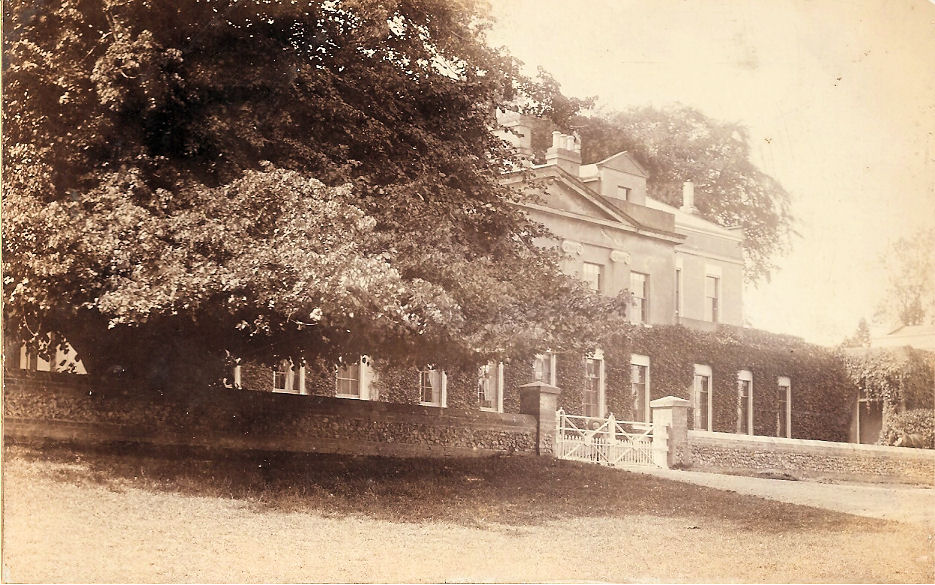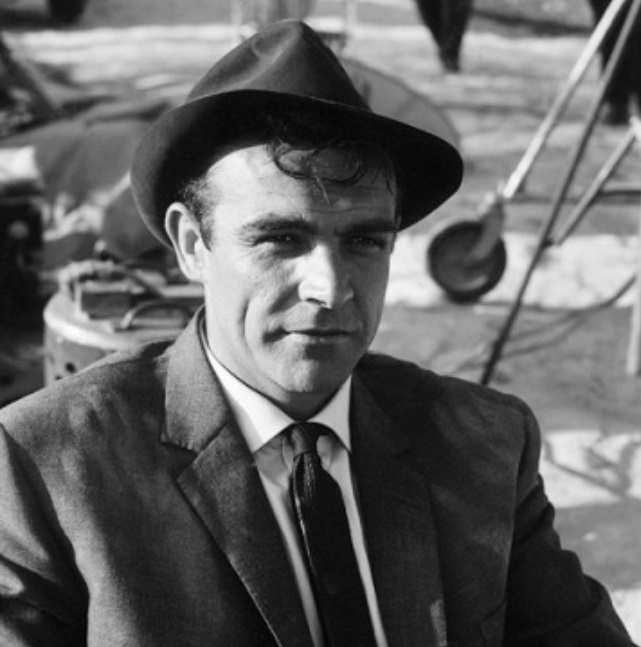|
Elaine Taylor (actress)
Elaine Regina Taylor Plummer (born 17 October 1943) is an English former actress, best known as a leading lady in comedy films of the late 1960s and early 1970s. She is the widow of Canadian actor Christopher Plummer, to whom she was married for 50 years. Early life Elaine Regina Taylor was born in Hemel Hempstead, Hertfordshire. With the encouragement of her mother, Frances, she took dancing lessons as a child. In 1950, she had her hair styled by hairdresser Raymond Bessone for the part of Will O'the Wisp. Taylor later studied at the Italia Conti Academy of Theatre Arts and joined the London Festival Ballet. Career Early television and radio roles In the mid-1960s, Taylor appeared in episodes of British television series such as ''The Benny Hill Show'' (1965), ''The Lance Percival Show'' (1966), in which she sang as well as taking part in comedy sketches, ''The Old Campaigner'' (1967), which featured Terry-Thomas as a womanising plastics salesman, and '' Mr Rose'', starring W ... [...More Info...] [...Related Items...] OR: [Wikipedia] [Google] [Baidu] |
Hemel Hempstead
Hemel Hempstead () is a town in the Dacorum district in Hertfordshire, England. It is located north-west of London; nearby towns and cities include Watford, St Albans and Berkhamsted. The population at the 2021 United Kingdom census, 2021 census was 95,961. Hemel Hempstead has existed since at least the 8th century and was granted its Royal charter, town charter by Henry VIII in 1539. However, it has expanded and developed in recent decades after being designated as a New towns in the United Kingdom, new town after the end of the Second World War. History Origin of the name The Human settlement, settlement was called Henamsted or Hean-Hempsted in Anglo-Saxon times and Hemel-Amstede by the time of William the Conqueror. The name is referred to in the Domesday Book as Hamelamestede, but in later centuries it became Hamelhamsted, and, possibly, Hemlamstede. In Old English, ''-stead'' or ''-stede'' simply meant "place" (reflected in German ''Stadt'' and Dutch ''stede'' or ''sta ... [...More Info...] [...Related Items...] OR: [Wikipedia] [Google] [Baidu] |
Baby Doll
''Baby Doll'' is a 1956 American black comedy film directed by Elia Kazan and starring Carroll Baker, Karl Malden and Eli Wallach. It was produced by Kazan and Tennessee Williams, and adapted by Williams from two of his own one-act plays: '' 27 Wagons Full of Cotton'' and '' The Unsatisfactory Supper''. The plot focuses on a feud between two rival cotton gin owners in rural Mississippi. Filmed in Mississippi in late 1955, ''Baby Doll'' was released in December 1956. It provoked significant controversy, mostly because of its implied sexual themes, and the National Legion of Decency condemned the film. Despite the moral objections, ''Baby Doll'' enjoyed a mostly favorable response from critics and earned numerous accolades, including the Golden Globe Award for Best Director for Kazan and nominations for four other Golden Globe awards, four Academy Awards and four BAFTA Awards. Wallach won the BAFTA award for Most Promising Newcomer. ''Baby Doll'' has been listed by some film s ... [...More Info...] [...Related Items...] OR: [Wikipedia] [Google] [Baidu] |
Mod (subculture)
Mod, from the word ''modernist'', is a subculture that began in late 1950s London and spread throughout Great Britain, eventually influencing fashions and trends in other countries. It continues today on a smaller scale. Focused on music and fashion, the subculture has its roots in a small group of stylish London-based young men and women in the late 1950s who were termed ''modernists'' because they listened to modern jazz. Elements of the mod subculture include fashion (often tailor-made suits), music (including soul, rhythm and blues and ska, but mainly jazz). They rode motor scooters, usually Lambrettas or Vespas. In the mid-1960s, members of the subculture listened to rock groups with rhythm and blues (R&B) influences, such as the Who and Small Faces. The original mod scene was associated with amphetamine-fuelled all-night jazz dancing at clubs. During the early to mid-1960s, as the mod movement grew and spread throughout Britain, certain elements of the mod scene be ... [...More Info...] [...Related Items...] OR: [Wikipedia] [Google] [Baidu] |
Half A Sixpence (film)
''Half a Sixpence'' is a 1967 Cinema of the United Kingdom, British musical film directed by George Sidney starring Tommy Steele, Julia Foster and Cyril Ritchard. It was choreographed by Gillian Lynne. The screenplay by Beverley Cross is adapted from his Musical theatre#Definitions, book for the 1963 Half a Sixpence, stage musical of the same name, which was based on ''Kipps, Kipps: The Story of a Simple Soul'', the 1905 novel by H. G. Wells. The music and lyrics are by David Heneker. This was the final film made by Sidney. Plot In Victorian England, a young orphan, Arthur Kipps ("Artie"), finds a sixpence as he walks along a river with his young friend, Ann. Artie is then sent to a nearby town, where he is to serve as apprentice to a draper. Several years later he meets up with Ann once again, and with the coin cut into two he gives one half to Ann as a symbol of their love. Artie grows up into a young man. Work at the draper's store is difficult. He becomes friends with Ha ... [...More Info...] [...Related Items...] OR: [Wikipedia] [Google] [Baidu] |
Tommy Steele
Sir Thomas Hicks (born 17 December 1936), known professionally as Tommy Steele, is an English entertainer, regarded as Britain's first teen idol and rock and roll star. After being discovered at the 2i's Coffee Bar in Soho, London, Steele recorded a string of hit singles including "Rock with the Caveman" (1956) and the chart-topper "Singing the Blues#Marty Robbins and Tommy Steele versions, Singing the Blues" (1957). Steele's rise to fame was dramatised in ''The Tommy Steele Story'' (1957), the soundtrack of which was the first British album to reach number one on the UK Albums Chart. With collaborators Lionel Bart and Mike Pratt (actor), Mike Pratt, Steele received the 1958 Ivor Novello Awards, Ivor Novello Award for Most Outstanding Song of the Year for "A Handful of Songs". He starred in further musical films including ''The Duke Wore Jeans'' (1958) and ''Tommy the Toreador'' (1959), the latter spawning the hit "Little White Bull". Steele shifted away from rock and roll in th ... [...More Info...] [...Related Items...] OR: [Wikipedia] [Google] [Baidu] |
Casino Royale (1967 Film)
''Casino Royale'' is a 1967 spy parody film originally distributed by Columbia Pictures. It is loosely based on the 1953 novel of the same name by Ian Fleming, the first novel to feature the character James Bond. The film stars David Niven as the "original" Bond, Sir James Bond 007. Forced out of retirement to investigate the deaths and disappearances of international spies, he soon battles the mysterious Dr. Noah and the ruthless counter-intelligence agency SMERSH, inspired by actual organizations in the USSR. The film's tagline: "Casino Royale is too much... for one James Bond!" refers to Bond's plan to mislead SMERSH in which six other agents are pretending to be "James Bond", namely, baccarat master Evelyn Tremble ( Peter Sellers); millionaire spy Vesper Lynd ( Ursula Andress); Bond's secretary Miss Moneypenny ( Barbara Bouchet); Bond's daughter with Mata Hari, Mata Bond ( Joanna Pettet); and British agents Cooper ( Terence Cooper) and the Detainer ( Daliah Lavi). ... [...More Info...] [...Related Items...] OR: [Wikipedia] [Google] [Baidu] |
Alexandra Bastedo
Alexandra Lendon Bastedo (9 March 1946 – 12 January 2014) was a British actress, best known for her role as the secret agent Sharron Macready in the 1968 British espionage/science fiction adventure series ''The Champions''. Bastedo was a vegetarian and animal welfare advocate, and wrote a number of books on both subjects. Early life Bastedo was born in Hove, England. Her mother (Liberiana Dorina Rescagliova,1917–2001) was of French, German and Italian descent, while her Canadian-born father (Gilbert Lendon Bastedo,1915–1985) was of Spanish, Dutch, Scottish and native American extraction. She attended Brighton and Hove High School and Brighton School of Drama. Professional career Bastedo made her film debut as one of the title characters in William Castle's poorly-received '' 13 Frightened Girls'' (1963). She gained attention on the European continent, earning her the nickname, "La Bastedo". One of her first appearances in popular culture was in the 1966 film '' Doctor i ... [...More Info...] [...Related Items...] OR: [Wikipedia] [Google] [Baidu] |
Barbara Bouchet
Barbara Bouchet (born Bärbel Gutscher; 15 August 1943) , glamourgirlsofthesilverscreen.com; retrieved 12 December 2014. is a German-Italian actress, dancer, and model, active in the United States and Italy. She is regarded as a sex symbol in of the 1960s and 1970s. Born in German-occupied Czechoslovakia, Bouchet's family emigrated to the United States after the |
Jacqueline Bisset
Winifred Jacqueline Fraser Bisset ( ; born 13 September 1944) is a British actress. She began her film career in 1965 and first came to prominence in 1968 with roles in ''The Detective (1968 film), The Detective'', ''Bullitt'', and ''The Sweet Ride'', for which she received a Golden Globe nomination as Golden Globe Award for New Star of the Year – Actress, Most Promising Newcomer. In the 1970s, she starred in ''Airport (1970 film), Airport'' (1970), ''The Mephisto Waltz'' (1971), ''Day for Night (film), Day for Night'' (1973), which won the Academy Award for Best Foreign Language Film, ''Le Magnifique'' (1973), ''Murder on the Orient Express (1974 film), Murder on the Orient Express'' (1974), ''St. Ives (1976 film), St. Ives'' (1976), ''The Deep (1977 film), The Deep'' (1977), ''The Greek Tycoon'' (1978) and ''Who Is Killing the Great Chefs of Europe?'' (1978), which earned her a Golden Globe nomination as Golden Globe Award for Best Actress – Motion Picture Comedy or Musica ... [...More Info...] [...Related Items...] OR: [Wikipedia] [Google] [Baidu] |
Bond Girl
A Bond girl is a character who is a love interest, female companion or (occasionally) an adversary of James Bond in a novel, film, or video game. Bond girls occasionally have names that are double entendres or sexual puns, such as Plenty O'Toole, Holly Goodhead, or Xenia Onatopp. The female leads in the films, such as Ursula Andress, Honor Blackman, or Eva Green, can also be referred to as "Bond girls". The term ''Bond girl'' may also be considered as a misnomer, with some female cast members in the films preferring the designation ''Bond woman''. In novels Nearly all of Ian Fleming's Bond novels and short stories include one or more female characters who can be said to qualify as Bond girls, most of whom have been adapted for the screen. While Fleming's Bond girls have some individual traits (at least in their literary forms), they also have a great many characteristics in common. One of these is age: The typical Bond girl is in her early to mid-twenties, roughly ten ... [...More Info...] [...Related Items...] OR: [Wikipedia] [Google] [Baidu] |
Patricia Hayes
Patricia Lawlor Hayes (22 December 1909 – 19 September 1998) was an English character actress. She is best known for playing the titular Edna in the ''Play for Today'', ''Edna, the Inebriate Woman'' (1971), for which she won the British Academy Television Award for Best Actress. Early life Patricia Lawlor Hayes was born in Streatham,Dennis Barker, "Hayes, Patricia Lawlor (1909–1998)", ''Oxford Dictionary of National Biography'', Oxford University Press, Sept 200available online Retrieved 18 June 2020. London, the daughter of George Frederick Hayes and Florence Alice Hayes. Her father was a clerk in the civil service and her mother was a schoolmistress. As a child, Hayes attended the Sacred Heart School in Hammersmith. Career Hayes attended RADA, graduating in 1928. She spent the next 10 years in repertory theatre. She was featured in many radio and television comedy shows between 1940 and 1996, including ''Hancock's Half Hour'', ''Ray's a Laugh'', '' The Arthur Askey Sh ... [...More Info...] [...Related Items...] OR: [Wikipedia] [Google] [Baidu] |






